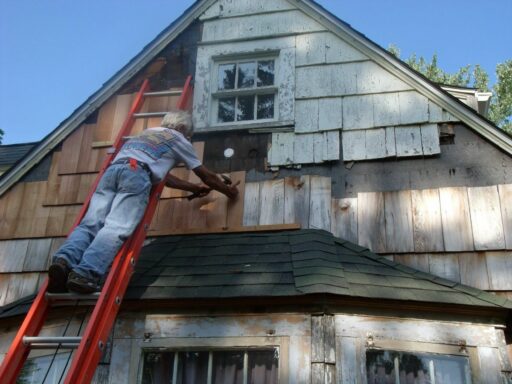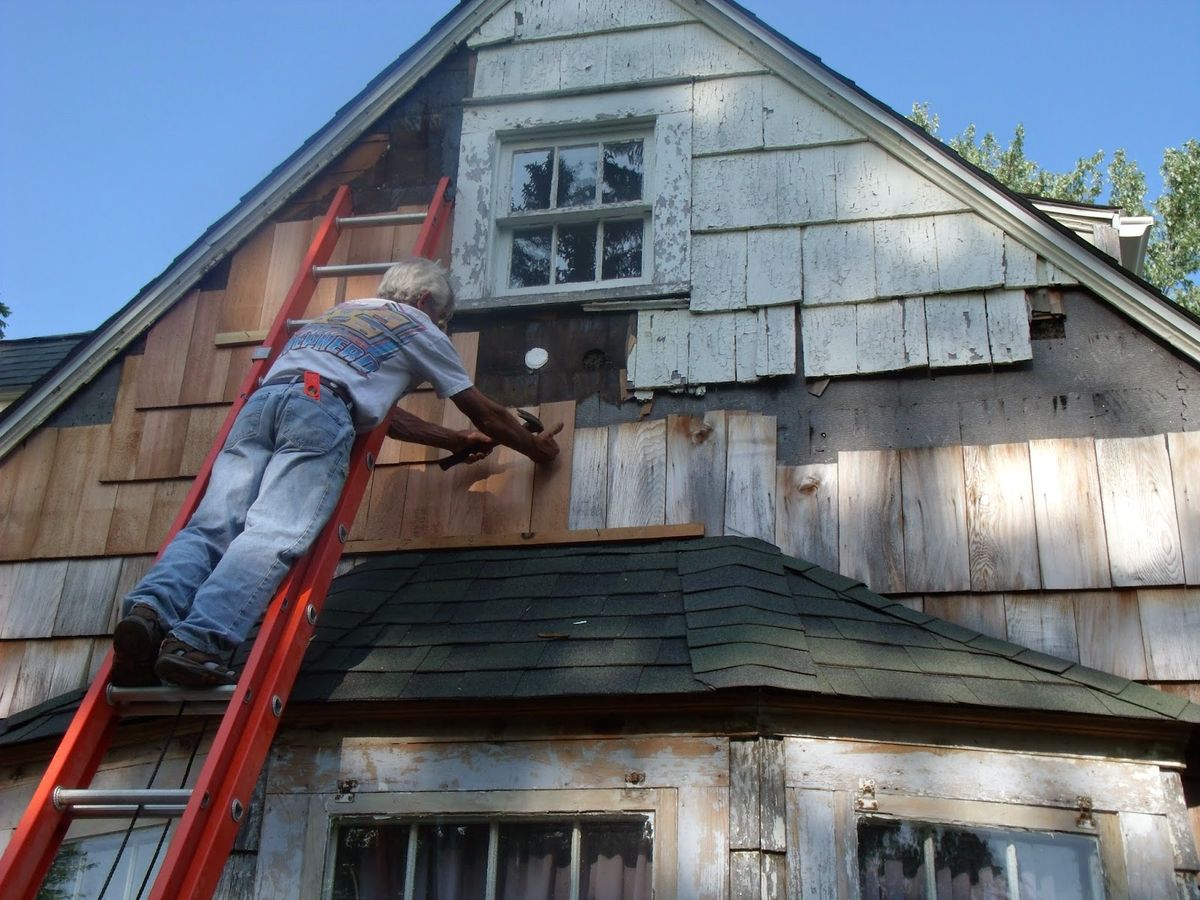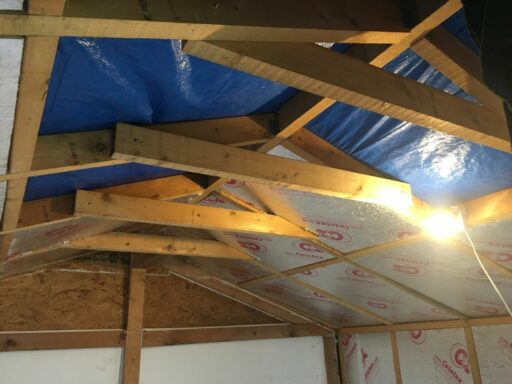Securing the right insulation contractor is critical for homeowners in Southern California, where the climate demands high-quality insulation to maintain comfort and energy efficiency. This guide aims to equip you with the knowledge to find the best insulation contractors, ensuring that your home is properly insulated with suitable materials, by reliable professionals, and at a reasonable cost. We’ll explore various aspects of insulation contracting, from understanding the local climate’s impact on insulation needs to maintaining your insulation over time.
Key Takeaways
- Proper insulation is essential in Southern California due to its unique climate, and homeowners should consider local weather patterns when choosing insulation materials.
- Evaluating insulation contractors requires checking for proper licensing and certifications, assessing their experience and past projects, and reading reviews and references.
- Top insulation contractors like Best Way Roofing and others offer specialized services and coverage across various Southern California locales, each with its own expertise.
- Budgeting for insulation projects involves understanding the cost factors, obtaining multiple quotes for comparison, and exploring financing options and potential rebates.
- Maintaining insulation is crucial for its longevity; regular inspections, timely repairs, and considering a complete overhaul when necessary are all part of effective insulation management.
Understanding Insulation Contracting in Southern California

The Importance of Proper Insulation
Proper insulation is a critical component in any Southern California home or building. It significantly affects energy efficiency, comfort, and even the structural integrity of the property. Properly insulated buildings maintain a consistent temperature, reducing the strain on heating and cooling systems and leading to lower utility bills.
Insulation acts as a barrier against the diverse climate conditions of Southern California, from the scorching heat to the occasional chilly winds. It’s not just about staying comfortable; it’s about creating an energy-efficient space that contributes to a sustainable future.
Identifying signs of inadequate insulation is key to maintaining an efficient home:
- Visible cracks or splits in walls or ceilings
- Interior leaks or water stains that suggest insulation failure
- An unusually high energy bill, which may indicate compromised insulation
If any of these signs are present, it’s advisable to consult with a professional insulation contractor to assess and rectify the situation. Ensuring your insulation is up to par is an investment in the longevity and performance of your property.
Climate Considerations for Southern California
In Southern California, the climate plays a pivotal role in determining the right insulation for your home. The region’s unique weather patterns necessitate specific insulation strategies to maintain energy efficiency and comfort. Southern California experiences a Mediterranean-like climate, characterized by warm, dry summers and mild, wetter winters.
The following list outlines the key climate zones in Southern California and their typical weather conditions:
- Coastal areas: Mild temperatures year-round with higher humidity.
- Inland valleys: Hotter summers and cooler winters compared to the coast.
- Desert regions: Extreme heat in summer and cold nights in winter.
- Mountain areas: Cooler temperatures and more precipitation, requiring robust insulation.
It’s essential to consider these climate zones when selecting insulation materials and contractors. The right choice will ensure that your home remains comfortable throughout the year while minimizing energy costs.
Understanding the local climate is crucial for a comprehensive guide on insulation contractors, materials, expertise, and innovations for energy-efficient homes. This knowledge aids in selecting contractors and understanding different insulation types that are best suited for the Southern California environment.
Types of Insulation Materials Commonly Used
In Southern California, selecting the right insulation material is crucial for energy efficiency and comfort. Insulated Concrete Forms (ICF) are a popular choice, offering both structural support and insulation. These foam bricks interlock and are filled with concrete, providing excellent thermal resistance and soundproofing qualities.
Another key material is Spray Fire-Resistive Materials (SFRM) and Intumescent Fire-Resistive Materials (IFRM), which protect structural members from losing integrity at high temperatures. It’s important to maintain and patch these materials to ensure continuous fire-resistance protection.
When considering insulation materials, it’s essential to balance thermal performance, fire safety, and environmental impact.
Here’s a list of commonly used insulation materials in Southern California:
- Insulated Concrete Forms (ICF)
- Spray Fire-Resistive Materials (SFRM)
- Intumescent Fire-Resistive Materials (IFRM)
- Fire-Resistance-Rated Glazing for visibility and light
Each material serves a specific purpose and is chosen based on the needs of the building and the goals of the insulation project.
How to Evaluate Insulation Contractors

Licensing and Certification Requirements
When selecting an insulation contractor in Southern California, it’s crucial to verify their licensing and certification. Contractors must possess the appropriate state and local licenses to ensure they meet the legal and professional standards for the job. The California State License Board (CSLB) offers various licenses, such as the General Building Contractor and Specialty Contractor, which includes Insulation and Acoustical Contractor.
To become a licensed contractor, individuals must pass the CSLB exams, which assess knowledge and practical skills in their trade. For instance, the B
General Building Contractor License requires passing both the Law and Business section and the Trade section. It’s important to choose a contractor who has successfully navigated the complexities of the licensing process, including eligibility criteria, insurance obligations, and safety standards.
Ensure your contractor is not only licensed but also adheres to the highest industry standards, including OSHA regulations and exam preparation.
Angi Certified businesses represent a reliable choice as they meet stringent certification standards, including passing a criminal background check and maintaining a high average star rating. Always confirm the contractor’s certifications and ask for proof of their license status before hiring.
Assessing Experience and Past Projects
When selecting an insulation contractor, it’s crucial to assess their experience and the breadth of their past projects. This not only gives you insight into their expertise but also their ability to handle projects similar to yours. Ask pointed questions about their years in the business, the number of projects they’ve completed, and the types of projects they’ve undertaken.
It’s essential to understand the contractor’s approach to project management, including their selection of subcontractors and their process for handling budget overruns or unexpected changes.
Here’s a list of questions to consider asking potential contractors:
- How long have you been in business?
- Can you provide a list of past projects similar to mine?
- Who will be on the project team, and what are their qualifications?
- How do you handle changes in project scope or budget?
Remember, a reputable contractor should be able to provide references and a written estimate, outlining what their services include and any foreseeable concerns for your specific project.
Reading Reviews and Checking References
When selecting an insulation contractor, reading reviews and checking references is crucial for gaining insight into the quality of their work and customer satisfaction. Start by asking the contractor for a list of references and make sure to contact them. Here are some questions you might consider asking previous clients:
- How would you rate the quality of the work?
- Was the project completed on time and within budget?
- How was the communication with the contractor throughout the project?
- Would you hire this contractor again?
It’s also beneficial to read online reviews on platforms like Houzz, where you can find discussions and before-and-after stories. Pay attention to both positive and negative reviews to get a balanced view of the contractor’s reputation.
Remember, a reputable contractor should be transparent and willing to provide you with all the information you need to make an informed decision. This includes a clear explanation of their pricing structure and how they handle any unforeseen costs or changes initiated by the client.
Top Insulation Contractors in Southern California

Best Way Roofing and Other Leading Providers
When seeking top-notch insulation contractors in Southern California, Best Way Roofing stands out among the leading providers. With a reputation for quality and reliability, they are a go-to for many homeowners and businesses. Alongside Best Way Roofing, there are several other reputable companies that have made a significant impact in the region.
- Best Way Roofing: Known for their expertise in various roofing systems.
- Seeburger & Sons Roofing: Offers 24/7 emergency services and addresses common roofing problems.
- National Roofing Contractors Association: Provides resources and maintains a high standard within the industry.
It’s crucial to consider the range of services offered by these contractors, from emergency repairs to complete installations, ensuring they can meet your specific needs.
Selecting the right contractor involves more than just finding someone who can get the job done. It’s about forming a partnership with a company that values honesty, integrity, and stands behind their work. With over 6 years of experience, these companies not only specialize in their craft but also in creating lasting relationships with their clients.
Comparing Services and Specializations
When selecting an insulation contractor in Southern California, it’s crucial to compare the range of services and specializations they offer. Not all contractors are created equal, and some may excel in areas that are particularly relevant to your project’s needs. For instance, while one contractor might specialize in eco-friendly insulation materials, another may have extensive experience with soundproofing in urban environments.
- Eco-Friendly Insulation: Contractors who focus on sustainable materials.
- Soundproofing: Experts in reducing noise pollution in homes.
- Thermal Insulation: Providers with a focus on energy efficiency.
- Fireproofing: Specialists in insulation that resists high temperatures.
It’s essential to align the contractor’s expertise with the specific challenges and goals of your insulation project. This ensures that you receive the most effective solution for your home or building.
Remember to explore the contractor’s website for a comprehensive list of services. Many feature a detailed breakdown of their offerings, which can include everything from HVAC systems to general contracting. This information can be invaluable in making an informed decision.
Geographical Coverage and Local Expertise
When selecting an insulation contractor in Southern California, geographical coverage is a critical factor. Contractors with extensive local expertise are familiar with the unique climate challenges and building codes of the region. They can provide tailored solutions that ensure your insulation is effective and compliant.
- My Insulation Guy is the #1 rated attic insulation contractor in the counties of Riverside, San Bernardino, Orange, and San Diego, offering competitive pricing and quality service.
It’s also important to consider the range of services offered by contractors in various locations. For instance, some may specialize in residential projects while others might have a broader scope, including commercial and industrial insulation services.
Contractors with a verified license and a history of responding quickly to inquiries are often more reliable. Look for those with awards or recognitions such as ‘Best of Houzz’ winners, which can be an indicator of quality service and customer satisfaction.
Budgeting for Your Insulation Project

Understanding Cost Factors
When budgeting for insulation in Southern California, it’s crucial to understand the various cost factors involved. The type of insulation material and the scope of the project are primary determinants of the overall cost. For instance, spray foam insulation tends to be more expensive than fiberglass batts, but offers better energy efficiency.
Additional costs may arise from the complexity of the installation, such as the need to navigate difficult spaces or remove old insulation. It’s important to discuss these potential costs with your contractor beforehand to avoid surprises. Here’s a list of questions to consider asking:
- Can you give me a written estimate?
- What do your services include?
- When can your job get done?
- What will I need to provide?
- Are there any important considerations or concerns you foresee with this project?
Remember, while initial costs are important, focusing on the long-term benefits of quality insulation can lead to significant energy savings and increased comfort in your home.
Lastly, don’t forget to inquire about any available rebates or financing options that can help offset the upfront costs. Companies like Climate Giant often have partnerships or programs that can assist homeowners in making their insulation projects more affordable.
Getting and Comparing Quotes
When you’re ready to take the next step in your insulation project, getting and comparing quotes from various contractors is essential. This process not only gives you a sense of the market rates but also provides insight into each contractor’s approach to your specific needs.
- Request detailed written estimates from multiple contractors.
- Ensure that the quotes include the same scope of work for an accurate comparison.
- Ask about any potential additional costs not covered in the estimate.
Remember, the lowest quote may not always represent the best value. Consider the contractor’s experience, reputation, and the quality of materials proposed.
Finally, don’t hesitate to ask questions that clarify the services offered and any concerns you might have. A reputable contractor will be transparent and willing to address all your inquiries.
Financing Options and Rebates
When planning for insulation upgrades, understanding the available financing options and rebates is crucial to managing your budget effectively. In Southern California, homeowners may have access to various financial incentives that can significantly reduce the upfront costs of insulation projects.
- Rebates: Utility companies often offer rebates for energy-efficient home improvements, including insulation. Check with your local provider for available programs.
- Financing: Many contractors provide financing plans, allowing you to pay for the insulation over time. Some may offer low-interest or interest-free periods.
- Government Incentives: State and federal programs may offer tax credits or low-interest loans for energy-saving renovations.
It’s essential to research and compare these options early in your project planning to ensure you can take full advantage of any savings. Remember, the initial cost may be offset by the long-term energy savings provided by high-quality insulation.
Lastly, visit our [website page](#) featuring a list of best contractors, including those specializing in insulation, to find more resources on financing and rebates.
Maintaining Your Insulation for Longevity

Regular Inspections and Maintenance Tips
Maintaining the integrity of your insulation is crucial for energy efficiency and safety. Regular inspections are key to identifying potential issues before they escalate. It’s recommended to visually survey all insulation assemblies annually, as some building codes may mandate. Look for visible signs of damage such as cracks, splits, or interior leaks which could indicate insulation failure. An unusually high energy bill can also be a red flag for compromised insulation.
To ensure the fire and smoke resistance of your building, it’s essential to inspect fire-rated walls, floors, and doors. NFPA 80 requires that fire-rated doors be inspected annually to confirm they are operational. Barrier Repair Contractors can perform these inspections, as well as necessary repairs or replacements to maintain the protective qualities of these barriers.
Proactive maintenance not only preserves the effectiveness of your insulation but also extends its lifespan. By scheduling regular check-ups with a reputable contractor, you can manage your insulation’s condition throughout the building’s life cycle.
Remember to document all repairs and maintenance work. This creates a valuable inventory for building owners and managers, facilitating effective management over time. For a comprehensive list of top-rated contractors, including those specializing in barrier repairs, refer to our website’s dedicated page.
Dealing with Insulation Repairs and Upgrades
Maintaining the integrity of your insulation is crucial for energy efficiency and safety. Regular inspections can reveal issues such as cracks, leaks, or outdated materials that compromise your home’s thermal barrier. When these signs appear, it’s essential to address them promptly with professional repair services.
- Visible cracks or splits
- Interior leaks or water stains
- Unusually high energy bills
These indicators suggest that your insulation may require attention. Upgrading your insulation can also lead to significant energy savings and improve indoor comfort. For instance, replacing old insulation with newer, more efficient materials can keep your AC’s cool air inside, where it belongs.
It’s advisable to conduct an annual visual survey of all insulation assemblies to ensure continuity of protection. Some codes may mandate this practice.
When selecting a contractor for repairs or upgrades, consider their experience with similar projects. Look for contractors who document their completed repairs, providing a clear inventory for ongoing building management. Companies like Atticare, known for energy efficiency home upgrades, or Ocean Exteriors, a premier provider in Southern California, are examples of contractors with a strong reputation in the region.
When to Consider a Complete Insulation Overhaul
An insulation overhaul is a significant undertaking, but certain signs should not be ignored. Visible cracks or splits in your insulation, interior leaks, or an unexplained spike in energy bills are clear indicators that your insulation may be failing. These symptoms suggest that the insulation is no longer performing its intended function and could be compromising the energy efficiency of your home.
Regular inspections are crucial for maintaining the integrity of your insulation. It is recommended to visually survey all assemblies annually, as some building codes mandate. If you encounter any of the aforementioned issues, it’s time to consult with a professional. Barrier Repair Contractors can perform the necessary repairs and document them for ongoing building management.
When considering an insulation overhaul, it’s essential to act promptly. Delaying repairs can lead to further damage and increased costs over time. Consulting with a reputable contractor can ensure that your insulation is restored to its optimal condition, providing continued protection and efficiency for your home.
Conclusion
Selecting the right insulation contractor in Southern California is a critical decision that can affect the comfort, energy efficiency, and value of your home. Throughout this guide, we’ve highlighted key factors to consider, from the importance of local expertise in areas like Mission Viejo, Santa Ana, and Irvine, to the significance of customer reviews and professional credentials. We’ve also provided a list of reputable contractors in the region, ensuring you have a solid starting point for your search. Remember to thoroughly vet each potential contractor, inspect their bids, and check their track record for timely and quality service. With the right research and due diligence, you’ll be well on your way to a successful insulation project that will serve you well for years to come.
Frequently Asked Questions
What factors should I consider when choosing an insulation contractor in Southern California?
When selecting an insulation contractor, consider their licensing and certification, experience with projects similar to yours, customer reviews, references, and knowledge of local climate and insulation materials.
How does the climate in Southern California affect my insulation needs?
The Southern California climate can be quite varied, with hot summers and mild winters. Proper insulation helps maintain a comfortable indoor temperature and can reduce energy costs, so it’s essential to choose materials and installation methods suited for the region.
What are the most common types of insulation used in Southern California homes?
Common insulation types in the region include fiberglass, cellulose, spray foam, and rigid foam board. The best choice depends on your specific needs, the area to be insulated, and the local climate.
Can I get a rebate or financing for my insulation project in Southern California?
Yes, many utility companies and local governments offer rebates or financing options for energy-efficient upgrades, including insulation. Check with your local providers or the Database of State Incentives for Renewables & Efficiency (DSIRE) for more information.
How often should I inspect and maintain my home’s insulation?
It’s a good practice to inspect your insulation at least once a year or whenever you suspect there might be damage or performance issues. Regular maintenance can extend the life of your insulation and ensure it operates at peak efficiency.
What should I do if I think my insulation needs to be repaired or replaced?
If you notice signs of insulation damage or inefficiency, such as uneven temperatures in your home, higher energy bills, or visible deterioration, contact a professional insulation contractor to assess the situation and recommend the best course of action.




